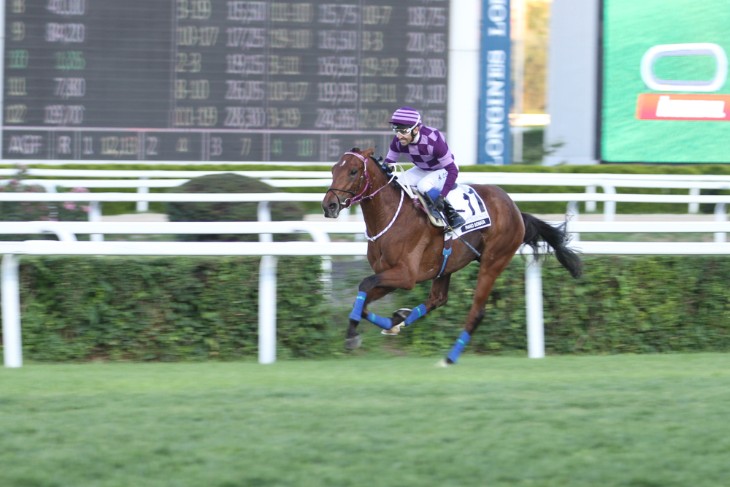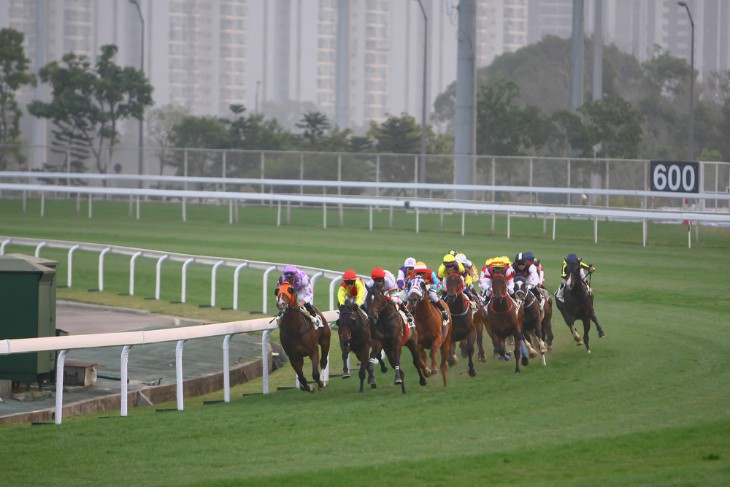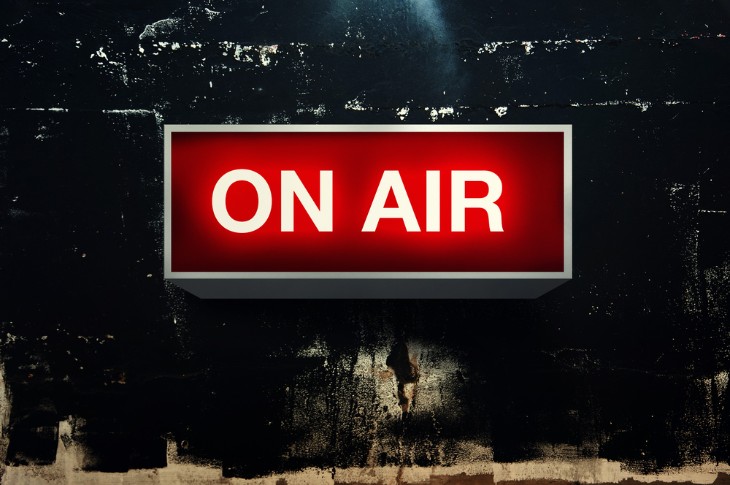- Overview of Horse Racing Radio Stations
- Key Features of a Horse Racing Radio Station
- The Role of Commentators in Horse Racing Radio
- Popular Horse Racing Events Covered by Radio
- The Impact of Digital Technology on Horse Racing Radio
- How to Access Horse Racing Radio Stations
- Racing Terminology on the Radio
- Comparing Horse Racing Radio and Television Coverage
- Fan Engagement and Community in Horse Racing Radio
- Conclusion
The early days of horse racing broadcasts were markedly different from today's sophisticated coverage. Initially, these events were primarily covered in newspapers, with detailed accounts of the races being the only way for many to follow the sport. The advent of radio broadcasting brought about a revolutionary change. It enabled live updates, bringing the excitement of the races directly to people's homes. This era marked a significant shift, as it allowed fans to experience the thrill of the race in real-time, a luxury previously reserved for those present at the event.
The progression from simple race updates to comprehensive coverage on the radio was swift. By the mid-20th century, horse racing radio broadcasts had become a staple for fans of the sport. These broadcasts not only provided live race commentary but also introduced pre-race analyses, post-race interviews, and expert opinions.
Overview of Horse Racing Radio Stations
Horse racing radio stations, specific in their focus, play a crucial role in the broadcasting landscape of the sport. These stations are dedicated entirely to horse racing, offering a blend of live race coverage, expert analysis, and interactive discussions. A typical horse racing radio station's programming schedule is meticulously crafted to cater to the sport's enthusiasts. This includes live broadcasts of major and minor races, often with exclusive rights to certain events. The live commentary is a highlight, providing listeners with a detailed and dynamic description of the races as they unfold.
Beyond live race coverage, these stations often feature segments that delve into various aspects of horse racing. Programmes may include interviews with jockeys, trainers, and other key figures in the industry, offering insights into the sport's inner workings. Additionally, many horse racing radio stations also engage in discussions about betting tips, horse breeding, and the condition of tracks, which are crucial elements of the sport.
Key Features of a Horse Racing Radio Station
Understanding what is the horse racing radio station entails recognising its key features that distinguish it from other sports broadcasts. One of the primary characteristics is the immediacy and excitement of live race commentary. Commentators at these stations are adept at capturing the essence of the races, translating the visual spectacle into vivid auditory experiences. Their rapid, enthusiastic delivery keeps listeners on the edge of their seats, mimicking the adrenaline rush one would feel at the racecourse. This immediacy is crucial; it's about delivering the unfolding drama of the race as it happens, with all the unpredictability and excitement that comes with live sport.
Another defining feature is the comprehensive coverage of the sport. Horse racing radio stations do not just focus on the races themselves; they provide a holistic view of the sport. This includes in-depth analysis of horses, jockeys, and trainers, as well as coverage of the behind-the-scenes aspects of horse racing. These stations often feature interviews with industry experts, discussions about horse welfare, and updates on regulatory changes in the sport. This multifaceted approach ensures that listeners are not only entertained but also thoroughly informed about all aspects of horse racing.

The Role of Commentators in Horse Racing Radio
The role of commentators in horse racing radio cannot be overstated. They are the linchpin of the broadcast, bringing the energy and excitement of the races to listeners. A skilled commentator transforms a mere sequence of events into a gripping narrative, keeping the audience engaged throughout the race. Their ability to describe the action in a clear, vivid manner is crucial, especially in a sport where events unfold rapidly. They provide a running commentary that captures the highs and lows of the race, often needing to think on their feet as they relay the changing positions and strategies of the horses and jockeys.
Moreover, commentators on horse racing radio stations often have a deep understanding of the sport. Many are former industry professionals, bringing a wealth of knowledge and experience to their commentary. This expertise allows them to offer insights that go beyond the surface, explaining the nuances of the sport to listeners. They might discuss a horse's form, a jockey's tactics, or the impact of track conditions, providing a richer, more informed experience for the audience. This blend of excitement and expertise is what makes the role of commentators so central to the success of horse racing radio broadcasts.
Popular Horse Racing Events Covered by Radio
When considering the range of events covered by horse racing radio, it's evident that these stations play a pivotal role in bringing the sport to a wide audience. Major events like the Cheltenham Festival, the Grand National, and Royal Ascot feature prominently in their schedules. These events, renowned for their heritage and prestige, attract vast numbers of listeners, from seasoned enthusiasts to casual fans. The coverage of these high-profile races is extensive, often starting well before the event with previews, interviews, and expert analysis. During the races, the live commentary is the centerpiece, capturing every thrilling moment as it happens.
However, the scope of horse racing radio extends beyond these marquee events. Many stations also cover a variety of lesser-known races, providing exposure to the broader spectrum of the sport. This includes international races, which are increasingly gaining popularity among listeners. Coverage of such diverse events showcases the global nature of horse racing, allowing fans to follow international horses and jockeys.
The Impact of Digital Technology on Horse Racing Radio
The advent of digital technology has significantly influenced the landscape of horse racing radio. With the rise of internet streaming, horse racing radio stations have expanded their reach far beyond traditional radio waves. This technological evolution has made it easier for fans to access live coverage and archived content from anywhere in the world. Streaming services offer a more flexible listening experience, allowing enthusiasts to tune in to their favorite races at their convenience. Additionally, the integration of mobile apps has revolutionised how audiences engage with horse racing radio, providing instant access to live broadcasts, latest news, and betting odds right at their fingertips.
Digital technology has also enabled horse racing radio stations to offer more interactive and personalised content. Listeners can now participate in discussions, share their opinions, and even contribute content through various digital platforms. Social media integration has fostered a sense of community among fans, facilitating real-time conversations and debates about races and related topics. The use of digital analytics tools allows stations to understand their audience better, tailoring their content to suit listener preferences. This synergy of horse racing radio with digital technology represents a significant shift, enhancing the listener experience and ensuring the sport's relevance in an increasingly digital world.
How to Access Horse Racing Radio Stations
Accessing horse racing radio stations has become more straightforward and varied, thanks to advancements in technology. Traditionally, these stations were available through conventional AM or FM radio frequencies, limiting their reach to the station's broadcasting range. However, the digital age has significantly expanded access options. Now, one of the most popular ways to tune into these stations is via the internet. Online streaming platforms have made it possible to listen to horse racing radio from anywhere in the world, provided there is a stable internet connection. This has significantly broadened the audience, allowing international fans to engage with races and content that were previously inaccessible.
Moreover, many horse racing radio stations have developed mobile applications, further enhancing accessibility. These apps not only stream live races but also provide additional features such as race schedules, betting odds, and latest news updates. They are designed for ease of use, ensuring that listeners can navigate through the various options with minimal hassle. For those wondering what is the horse racing radio station in their area or how to access specific content, most stations provide detailed information on their websites. This includes guidance on how to tune in via various digital mediums, making it easier for new listeners to join the horse racing community.
Racing Terminology on the Radio
For newcomers to horse racing, understanding the specific terminology used in radio broadcasts can be daunting. Horse racing has its own unique lexicon, which can be confusing to those not familiar with the sport. Terms like "furlong," "handicap," and "stayer" are commonly used in commentary and discussions. These terms are essential for conveying the intricacies of the races and the strategies employed by jockeys and trainers. To assist listeners, many horse racing radio stations provide glossaries on their websites, helping to demystify the sport's jargon. Some broadcasters also take the time to explain certain terms during their commentary, making their content more accessible to a broader audience.
In addition to race-specific terminology, betting-related phrases are also prevalent in horse racing broadcasts. Understanding these terms is crucial for listeners who engage in betting. Terms like "accumulator," "each-way," and "ante-post" are regularly used in discussions about betting odds and predictions. Recognising the importance of this aspect of the sport, horse racing radio stations often include segments dedicated to betting, where experts explain various betting strategies and terms. This educational approach not only enriches the listening experience but also ensures that the audience can fully engage with all aspects of horse racing.

Comparing Horse Racing Radio and Television Coverage
Comparing horse racing radio with television coverage reveals distinct differences and unique advantages of each medium. Television coverage of horse racing offers visual excitement, allowing viewers to witness the races' vibrant colours, the jockeys' skillful manoeuvres, and the horses' powerful strides. The visual element creates an immersive experience, especially for high-profile races with large audiences and elaborate presentations. Slow-motion replays and close-up shots provide detailed views of key moments, enhancing the understanding and enjoyment of the sport.
However, horse racing radio coverage has its unique charm and advantages. Radio broadcasts rely on vivid descriptions and dynamic commentary to convey the race's excitement, requiring commentators to paint a picture with words. This often results in a more narrative and personalised experience, as listeners use their imagination to visualise the race. Moreover, radio is more accessible for people on the move, allowing fans to stay connected with the races without needing to be in front of a television. The skill of the radio commentators in capturing the essence of the race through audio alone cannot be understated; their narrative brings the race to life in the listener's mind, making for a uniquely engaging experience. Each medium offers a different way to experience the thrill of horse racing, catering to diverse preferences of fans around the world.
Fan Engagement and Community in Horse Racing Radio
Fan engagement and community building are central to the ethos of horse racing radio. These stations do not merely broadcast races; they create a platform for fans to connect and share their passion for the sport. Interactive segments, where listeners can call in or send messages, play a vital role in this process. They allow fans to voice their opinions, share experiences, and engage in discussions with experts and fellow enthusiasts. This interaction fosters a sense of community, making listeners feel like an active part of the horse racing world. Radio stations often feature fan interviews and stories, further personalising the experience and strengthening the bond within the listener community.
Social media has also become an integral tool for these radio stations to engage with their audience. Platforms like Twitter, Facebook, and Instagram enable stations to reach out to fans, providing updates, behind-the-scenes content, and opportunities for direct interaction. Online polls, live-tweeting during races, and Q&A sessions with racing experts are just some ways these platforms are utilised. This digital engagement complements the traditional radio experience, offering a more holistic and interactive approach. As a result, horse racing radio stations have evolved into vibrant communities, uniting fans from diverse backgrounds in their shared love for the sport.
Conclusion
As digital platforms become more prevalent, horse racing radio is likely to embrace new formats and mediums to enhance the listener experience. Podcasts, for example, offer an on-demand listening experience and could become a significant part of horse racing radio's offerings. These could feature race recaps, interviews, and in-depth discussions, allowing fans to engage with content at their convenience. The integration of augmented reality and virtual reality technologies might also play a role, offering an immersive listening experience that could simulate the feeling of being at the races.
Moreover, as the global interest in horse racing grows, stations are expected to continue expanding their international coverage, bringing races from all corners of the world to a global audience. The question of what is the horse racing radio station is likely to evolve further, encompassing a wide array of digital and interactive elements.
For more information:








